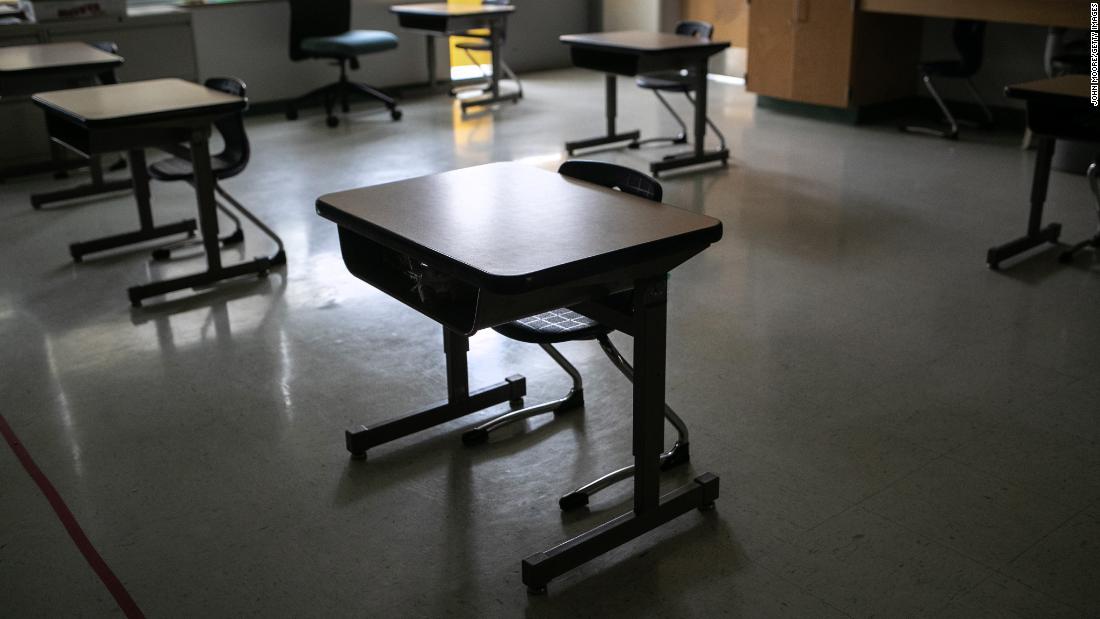
The first logjam involves the politics of federalism. Unlike the economy, environment, or doctor's office, public education is truly a local affair -- run by 50 independent states and around 13,000 independent school districts. And nothing is more personal to parents than their children. The federal role has significantly expanded over the last 50 years, but so has the backlash.
Former President Barack Obama's Secretary of Education, Arne Duncan enraged multiple different constituencies by exerting questionable authority over curriculum, testing, teachers, and charter schools. Congress responded by substantially shrinking the secretary's authority and rewriting the Elementary and Secondary Education Act in 2015. The new law eliminated the one-size-fits-all approach to standardized testing, school accountability, and teacher quality, and made clear that most substantive decisions would be made by states, not the secretary.
Four years of President Donald Trump's Education Secretary Betsy DeVos reversing regulations and ignoring others once again revealed unilateral policy ambitions, highlighting the risks of broad secretarial power.
The second logjam centers on funding. The federal government covers less than 10% of it -- far from enough to counteract the inequalities that states structurally ingrain in their funding formulas. Nearly half the states provide less money to districts serving students from low-income households than they do to other districts. Studies have shown that a low-income student needs at least 40% more funding to be educated at the same standard of a student who is not low-income. Over the years, you can count on one hand the number of states with funding formulas that come near to providing low-income students the resources necessary to achieve at reasonable levels.
None of this is an accident. In my research, I found that states intentionally gerrymander their formulas in ways that advantage politically powerful communities and relieve them of the burden for supporting a statewide system of education that serves everyone.
Drastic cuts during the last recession made the funding dilemma worse. A decade after the recession, roughly half the states had still failed to restore public education budgets to pre-recession levels. Now, the pandemic's economic effects threaten a double dip in disadvantaged schools that can't stand to fall any further.
If that weren't enough, the teaching profession has suffered a decade of trauma that included flat salaries, larger classrooms, higher expectations and lower benefits. Political leaders, like former Wisconsin Gov. Scott Walker and former New Jersey Gov. Chris Christie, justified the shifts by targeting teacher unions as the problem, if not the enemy.
Teacher protests in 2018 and 2019 shined a national spotlight on the challenges facing public education and pressured some states to increase school funding, but those modest shifts feel like a distant memory measured against recent retrenchment. This summer, federal and state leaders demanded that teachers return to school even as Covid-19 cases surged. Teachers and union leaders recoiled, sensing that they were to be sacrificial lambs to the economy.
Even if some mutually reasonable plan could have been devised, it wasn't going to happen. No reserve of trust or respect existed from which to draw. And the breakdown further fed the narrative of those who claim teachers don't care about students' well-being but charters and private schools do -- which leads to the final challenge.
Following the recession, states drastically expanded funding for private school tuition and charter schools -- most often at the expense of public education. Before the recession, charter schools enrolled around a million students. Today, they enroll more than 3 million. Similarly, public financing for private school tuition among states was either minimal or non-existent. Today, Florida spends roughly $1 billion a year on private schools. An ever-growing number of states are on a similar path.
The families enrolled in these programs have a vested expectation in continued public support. And the ranks of likeminded families are growing as a result of the politics surrounding public school reopening.
The solution to these problems will be hard to find in Washington, DC. No doubt, the federal government has the money to eliminate unequal funding. Quadrupling the federal investment in low income students, for instance, would close half the existing funding gap between high-poverty and low-poverty schools and create the leverage to insist that states close the remaining gap themselves.
That money could shrink classrooms, increase teacher salaries, expand pre-kindergarten, hire reading specialists and mental health counselors and improve the overall school environment.
But the charter and voucher coalitions would cry foul or demand additional investments for themselves. This past summer, the Senate was already pushing for more private school funding -- or funding transfers to private schools if public schools didn't open. A Biden administration that accepted more charters and vouchers as a concession for additional public school funding would face the wrath of the very constituency it seeks to serve.
If the incoming administration managed to thread that needle toward a middle ground, the federalists would pounce. Quadrupling federal funding and the conditions that would surely accompany it would be vilified as a federal takeover of education, bringing us back to square one.
The most this next secretary might reasonably hope for is not a grand solution but to lower the temperature between teachers, officials, and parents. Nothing good happens before that. And it would take a good secretary, not an average one, to mind those relationships, open lines of communication and listen for long enough that everyone knows it is genuine. In addition to that, the right pick might educate the nation, help its people understand our logjam and mediate differences until there is a middle ground on which to accept solutions to a few problems. That is reality and, unfortunately, no solace to the children who suffer in the meantime.
"Opinion" - Google News
December 15, 2020 at 06:47AM
https://ift.tt/37izj3k
The logjam that awaits Biden's education secretary - CNN
"Opinion" - Google News
https://ift.tt/2FkSo6m
Shoes Man Tutorial
Pos News Update
Meme Update
Korean Entertainment News
Japan News Update
No comments:
Post a Comment